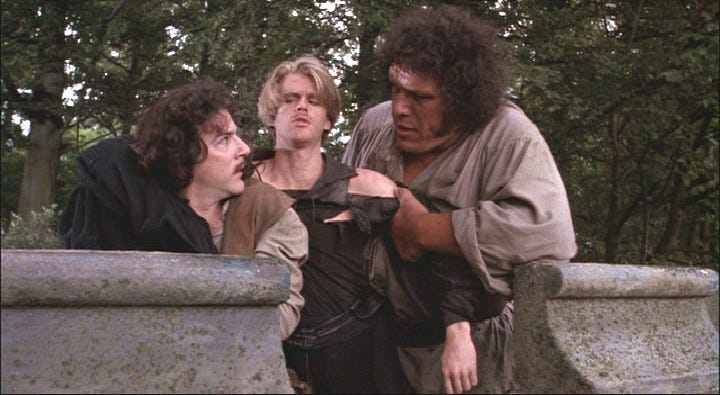It's time to rise like a Phoenix! Or at least shake off the broken pieces from the crash our character just went through.
Hopefully at this point our hero has discovered their motivation for picking themself back up, whether it is out of selflessness or duty or love or whatever it is they needed to learn at the beginning of the story.
For example, in The Wind Merchant, the story starts off with a character who feels like a failure and is very much concerned that he is at the bottom of the list of wind merchants (whose job is to fly out in their airships and collect a valuable resource on the wind), and the last place on the list is called the Lack.
So much of what he does early on is to avoid being seen as the inept person in the community, and it keeps him from discovering (for a while), that what makes him different is actually something that will serve him and make him uniquely qualified to save the day in ways that any other wind merchant couldn't.
And to not be too spoilery, the biggest character change I reserved for the last book in the trilogy where he recognizes finally that whatever title he could earn or opinion others have on him is going to pale in comparison to making sure he is doing what he can for the most good, no matter what other people think. And it doesn't even matter if he gets the credit for being the hero or if others don't understand and think he is a villain for doing the right thing.
When I got to that point in the story, I had to sit back and examine why it felt so right...and I realized that while the story had gotten bigger and bigger, if I went all the way back to the beginning, his flaw was that he was mostly concerned with being seen as a failure.
I wanted him to be free from that.
I wanted to be free from that.
Taking this back to stories being a great way to work through your own thoughts and feelings, I didn't realize that telling his story would help me so much in what I was working through in my own life. I just wanted a story about a father and son reuniting in a fantastical way, but the more time I spent on it the more I realized that I couldn't help but put part of myself into a story.
In The Invisible House, we had somewhat recently moved and my daughter was missing her old home. That story begins with a family approaching their new house and learning more and more about the mystery of the neighborhood.
But the core of the story was having a strong family identity that carried through no matter where you lived...and even came in handy when she was feeling lost in the past through time travel.
I'm not saying storytelling is something that will cover up for going to therapy and I don't think stories are served well if it is a moment for moment retelling of something you're going through in the real world.
But even if you set out to tell a story, you're going to wind up with themes and ideas that you're wrestling with, and you might surprise yourself with what comes out on the page when you start to write. Characters might start to say things that you need to hear...or you would say those things if you felt braver.
Why am I going on about this when we're talking about Act Three?
It's because we need to really examine who our character was at the beginning of the story. What are the flaws or difficulties they face? Are they similar to ones you're currently going through?
As we've put our hero through a lot of difficult things, they've survived. They've made it through everything the story has thrown at them, and while it probably hurt to go through, it's given them the opportunity to grow and feel more prepared as they're about to face down the thing that is causing the problems.
So what does our hero need to have learned to allow them to reach the end of the story a changed character?
That's going to be unique for each story and each writer, but it's an important thing to think through so we can have a satisfying conclusion to the story.
Activity: What Are Our Assets?
There's a moment in The Princess Bride where Westley is still mostly dead, but he's been rescued by Inigo and Fezzik. He's in no shape to save the day, so he has to be clever with the resources he has available to him.
He asks what they have to work with, and forms a plan.
At this point in the story, often our hero is going to realize they can't do this all on their own. They're going to need help still from the characters or resources they've had in Act Two, and in some cases some old friends from Act One.
Often the mentor isn't around anymore, so the hero is the one who will have to come up with the plan and be the leader. It's going to feel really lackluster if we get to the end of the story and the hero is just following someone else's plan to victory like they were following a mentor character earlier on.
Note: Even if the main character is going along with the plan, like Luke Skywalker joining the mission to attack the Death Star, it still requires him to make a choice of turning off his targeting computer and to trust the Force by the end.
So, it's time to gather your allies and figure out what our hero has to work with.
Make a list of characters and items that they can use in order to take on the villain (or whatever is causing the problem in the main arc of the story), and think through what the plan of action is our hero will take.
Now, often times this plan is going to fall apart, so don't rely on this initial plan to be the thing that helps them save the day ultimately.
The point is that we see our hero rise from a low point and take action once again.
So, what's the plan?













Share this post